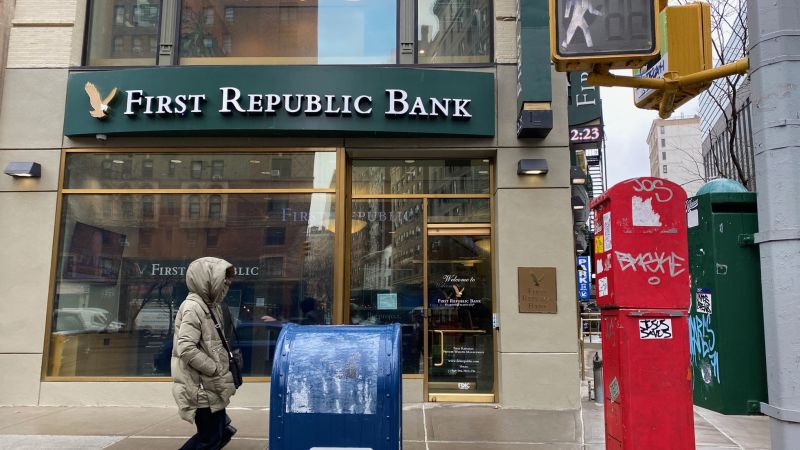Key takeaways:
- Bank stocks fell due to worries about potential collapses following the second- and third-largest bank failures in U.S. history.
- The Biden administration and federal regulators announced Sunday night that they would backstop customers’ deposits, even those that weren’t insured.
- Investors are concerned that the rise in interest rates may be damaging the banking system, and the market is uncertain about the future of regional banks.
On Monday, bank stocks fell due to worries about the potential for further collapses following the second- and third-largest bank failures in U.S. history. The collapse of Silicon Valley Bank on Friday was caused by customers panicking and withdrawing their deposits.
In response, the Biden administration and federal regulators announced Sunday night that they would backstop customers’ deposits, even those that weren’t insured. This news was met with optimism from the rest of the market, as investors are hopeful that the Federal Reserve will take it easier on its economy-rattling hikes to interest rates.
Despite the emergency measures, Wall Street’s confidence in regional banks remained shaky. Investors are concerned that the rise in interest rates, meant to get inflation under control, may be damaging the banking system.
The S&P 500 dipped 6 points, or 0.2%, after a day of volatile trading. The Dow Jones Industrial Average fell 90 points, or 0.3%, while the Nasdaq composite rose 0.4%. Western Alliance Bancorp’s stock fell 47%, and PacWest Bancorp fell more than 20%.
Overall, the market is still uncertain about the future of regional banks, and investors are watching closely to see if the Biden administration’s emergency measures will be enough to protect customers’ deposits and stabilize the banking system.



Be First to Comment